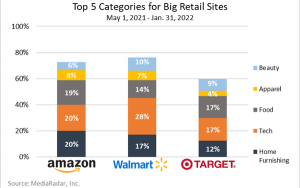
Keywords are the much-maligned components of business blogging. Using keywords has now gained the reputation of being an underhanded technique unsuitable for respectable businesses. In fact, if you look at the websites of well-known newspapers such as The New York Times, you’ll find that they don’t pay any attention to keywords at all. Their website content is a replica of their print content. It’s written in dense paragraphs which are far more suitable for newspapers than websites.
Articles written for The New York Times are going to be well-written. They’ll be free of spelling and grammatical errors and will have that elusive quality that every writer aims for—a voice. But the way in which they’re written is, in a word, traditional. It’s not an accurate reflection of how people write for the internet.
The New York Times website can get away with this type of writing because it belongs to an established, even revered, publication. But if you want to attract more viewers, you might need to use keywords, subheadings, lists, bullet points and other techniques that will keep your reader engaged. There’s nothing wrong with using these techniques and updating them as the rules of SEO change over time. So here are some tips to include the use of keywords in your business blog:
What Keywords Should You Use?
As this article from Huffington Post states, “Select common-sense keywords.” There’s no point in sitting around and obsessing about what keywords you should use. It’s not rocket-science.
If you run a real estate firm, your keywords are naturally going to revolve around real estate. They may include “house,” “home,” “apartment,” “single family home,” “multi-family home” and, of course, “real estate.” They’ll probably also include the names of the places where you do most of your business.
On the other hand, if you’re selling jewelry, your keywords are going to include “jewelry,” “necklace,” “bracelet,” “pendant,” “ring,” “engagement ring,” etc.
What Do You Specialize In?
If you’re specializing in one item over the other, then it makes sense to use that keyword more often. For example, if you do more real estate business in houses than apartments, then your content should revolve more around houses. If you sell more pendants than necklaces, your content should include this keyword more than the other.
This might seem like a very commonsensical thing to say but sometimes, when you write content or blog posts without keeping a keyword in mind, you may not use it that often and might end up using other keywords instead, which are not so relevant for your business.
How Do You Avoid Keyword Stuffing?
You don’t want to get into “keyword stuffing” which is the unnecessary use of keywords in ways that just don’t fit your content. It evolved because search engines used to assume that a website using a certain keyword more than others naturally had more to say about that topic. However, search engines no longer work in this way. They’ve become more complex and look for the natural use of keywords within a piece of content instead.
In addition to not serving any purpose, keyword stuffing is unnatural and prevents the writing from flowing in the way it should flow. You want visitors to enjoy their experience of your website. There’s no point in attracting them and then driving them away with bad writing.
How to Introduce Keyword Variety
One great way to get in a lot of keywords but still avoid keyword stuffing is by going for keyword variety. Or, as this writer from Entrepreneur puts it, “Multiply your keyword list with permutations and synonyms.”
If you’re writing an article about buying a home, you don’t have to limit yourself to the keyword, “home.” You can also use keywords like “house,” “single family home” and “real estate” in the same article. The advantage of doing this is that it also helps your writing to flow better.
Any good writer will tell you that word and sentence variety is necessary for good writing. In the case of business blogging, it also has the added advantage of improving your SEO.
How Do You Use the Same Keywords in Different Ways?
You can also experiment with using the same keyword in different ways. So if everyone else is writing articles like “5 Tips to Find the Home of Your Dreams” or “How to Find the Home You’ve Always Dreamt Of,” you can stand out from the crowd by writing something like “5 Tips to Help You Afford a Home” or “Practical Tips to Help You Find a Home.”
Shift the focus from dream homes to practicality when you buy a home. Or just focus on some other area of home-buying which people may not be covering at present. You’re still using the same keyword but you’re using it in a different way, which will help you to stand out with search engines as well as viewers.
Why You Should Keep Updating Your Keywords
When you’re using keywords, you have to keep in mind that they’re always changing. Keywords that are popular today aren’t going to be popular tomorrow. As the world itself changes, so does the internet.
For example, if you’re selling jewelry, you probably know that rose gold is quite popular at the moment. So are halo style engagement rings. So these are two keywords that are being bandied about a lot on the internet—“rose gold” and “halo style.” Next year, trends will have changed and different keywords will be popular.
In order to benefit from the use of keywords on your business blog, you have to keep updating it with keywords that are currently popular. If you start a blog and abandon it after a while, you’re not going to get any new traffic. Like anything else, blogging works better the more you do it.
(135)








